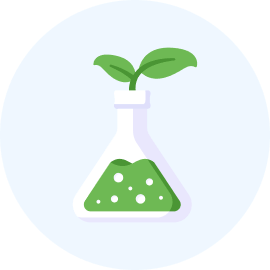GATE Life Sciences Exam > GATE Life Sciences Videos > Crash Course for GATE Life Sciences > GATE Life Science: Chemistry- 4
GATE Life Science: Chemistry- 4 Video Lecture | Crash Course for GATE Life Sciences
FAQs on GATE Life Science: Chemistry- 4 Video Lecture - Crash Course for GATE Life Sciences
| 1. What is the GATE exam for Life Sciences and how is it structured? |  |
Ans. The GATE (Graduate Aptitude Test in Engineering) exam for Life Sciences is an assessment that evaluates the comprehensive understanding of various subjects in the Life Sciences domain, including Biology, Chemistry, and Environmental Science. The exam typically consists of multiple-choice questions (MCQs), numerical answer questions, and sometimes, fill-in-the-blank type questions. The paper is structured to test both the theoretical knowledge and practical application skills of candidates.
| 2. What are the key topics covered in the Chemistry section of the GATE Life Sciences exam? |  |
Ans. The Chemistry section of the GATE Life Sciences exam covers a wide range of topics, including but not limited to, organic chemistry, inorganic chemistry, physical chemistry, biochemistry, analytical chemistry, and environmental chemistry. Candidates are expected to have a strong grasp of chemical principles, reaction mechanisms, molecular structure, and the properties of various compounds.
| 3. How can I prepare effectively for the Chemistry portion of the GATE Life Sciences exam? |  |
Ans. Effective preparation for the Chemistry portion involves a combination of understanding theoretical concepts, solving previous years' question papers, and taking mock tests. Candidates should focus on building a strong foundation in chemistry fundamentals, practicing numerical problems, and familiarizing themselves with the exam pattern. Additionally, using standard textbooks and online resources tailored to GATE Life Sciences can enhance preparation.
| 4. What is the significance of the GATE Life Sciences score for students? |  |
Ans. The GATE Life Sciences score is significant for students as it is used for admission into postgraduate programs (M.Sc., M.Tech, Ph.D.) at various prestigious institutions in India. Moreover, a good GATE score can also open up opportunities for research fellowships and jobs in public sector companies, as many of these organizations require GATE scores as a criterion for recruitment.
| 5. Are there any specific study materials or resources recommended for GATE Life Sciences Chemistry preparation? |  |
Ans. Yes, there are several recommended study materials for GATE Life Sciences Chemistry preparation. Standard textbooks such as "Organic Chemistry" by Morrison and Boyd, "Physical Chemistry" by Atkins, and "Biochemistry" by Berg et al. are widely used. Additionally, online platforms offering GATE-specific courses, video lectures, and practice question banks can be beneficial for comprehensive preparation. It's also advisable to refer to previous years' question papers for better insight into the exam pattern.
Related Searches




















